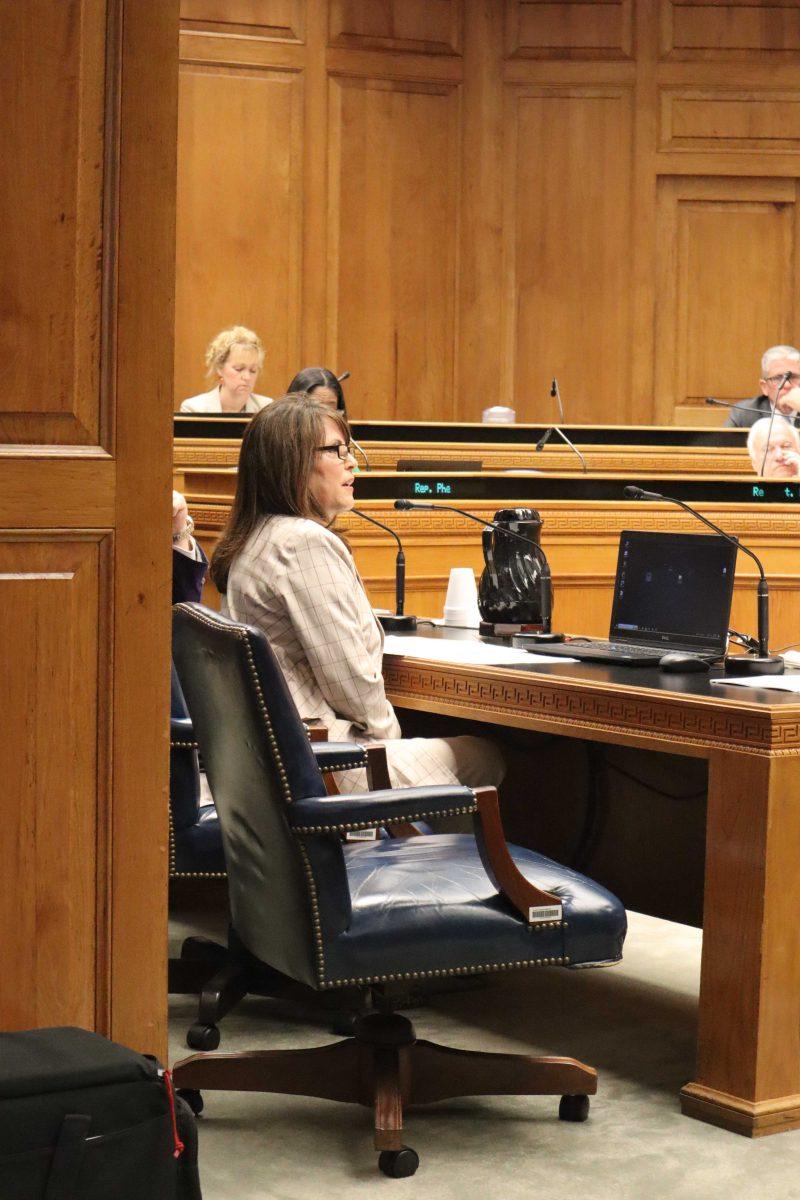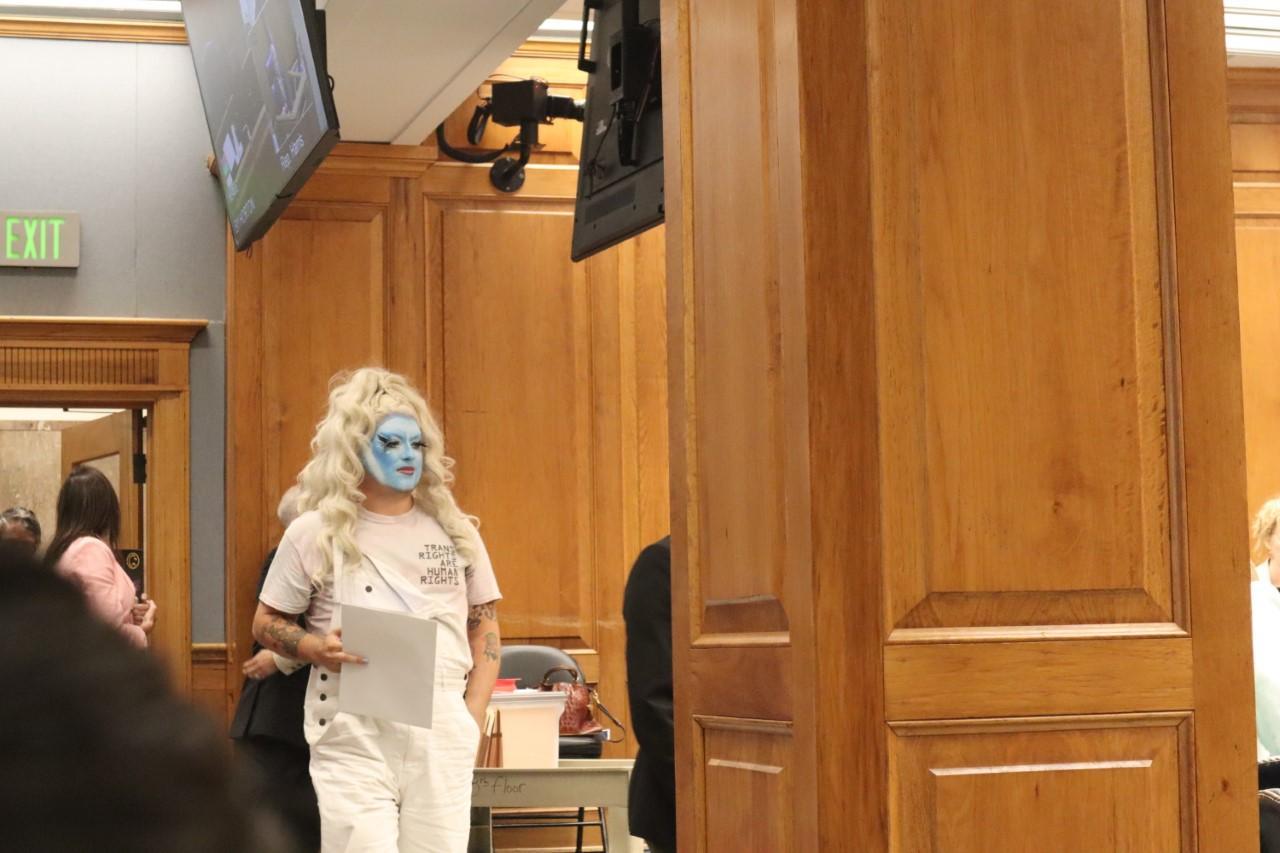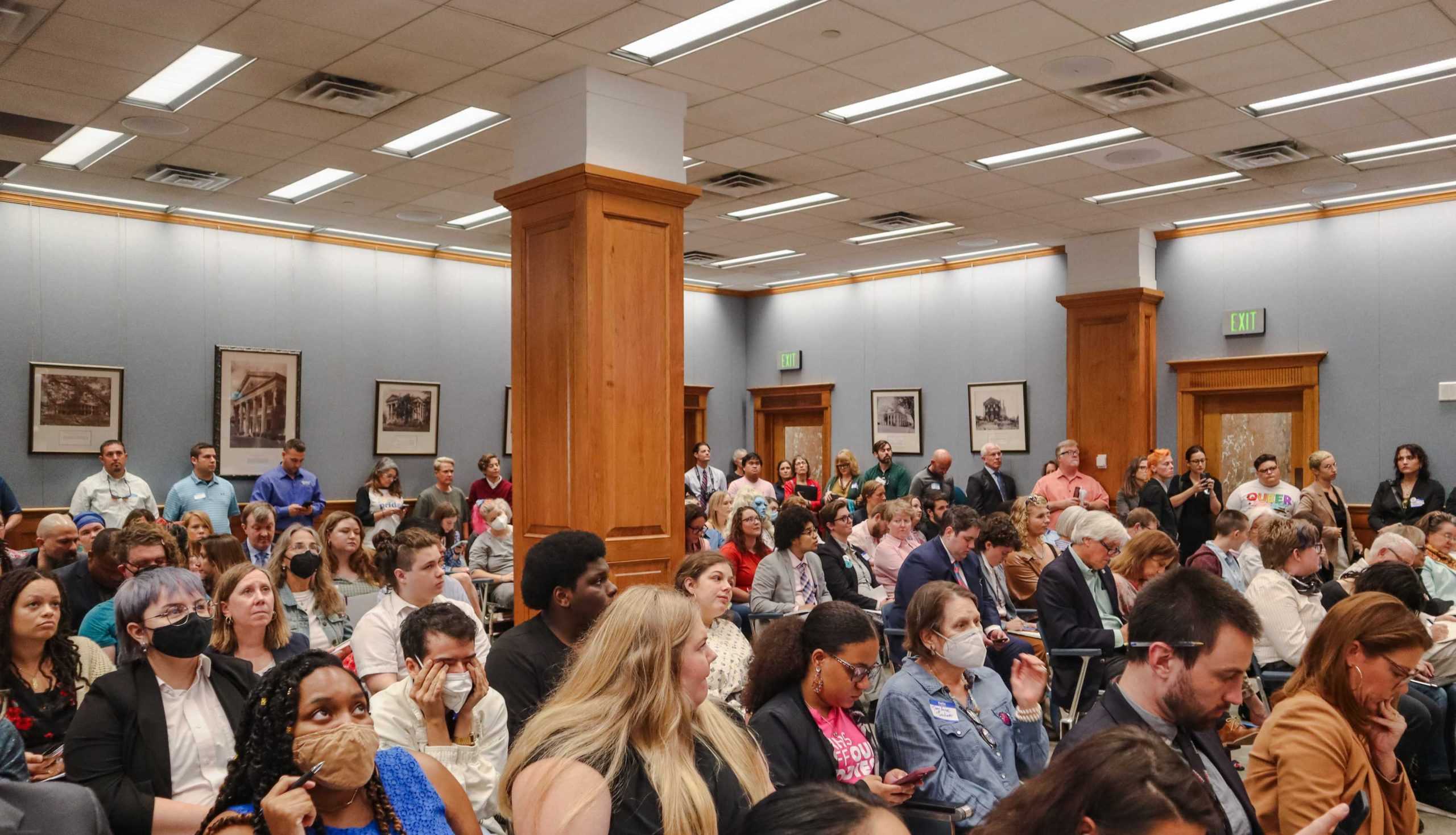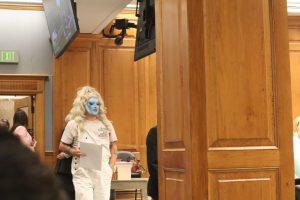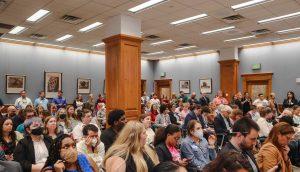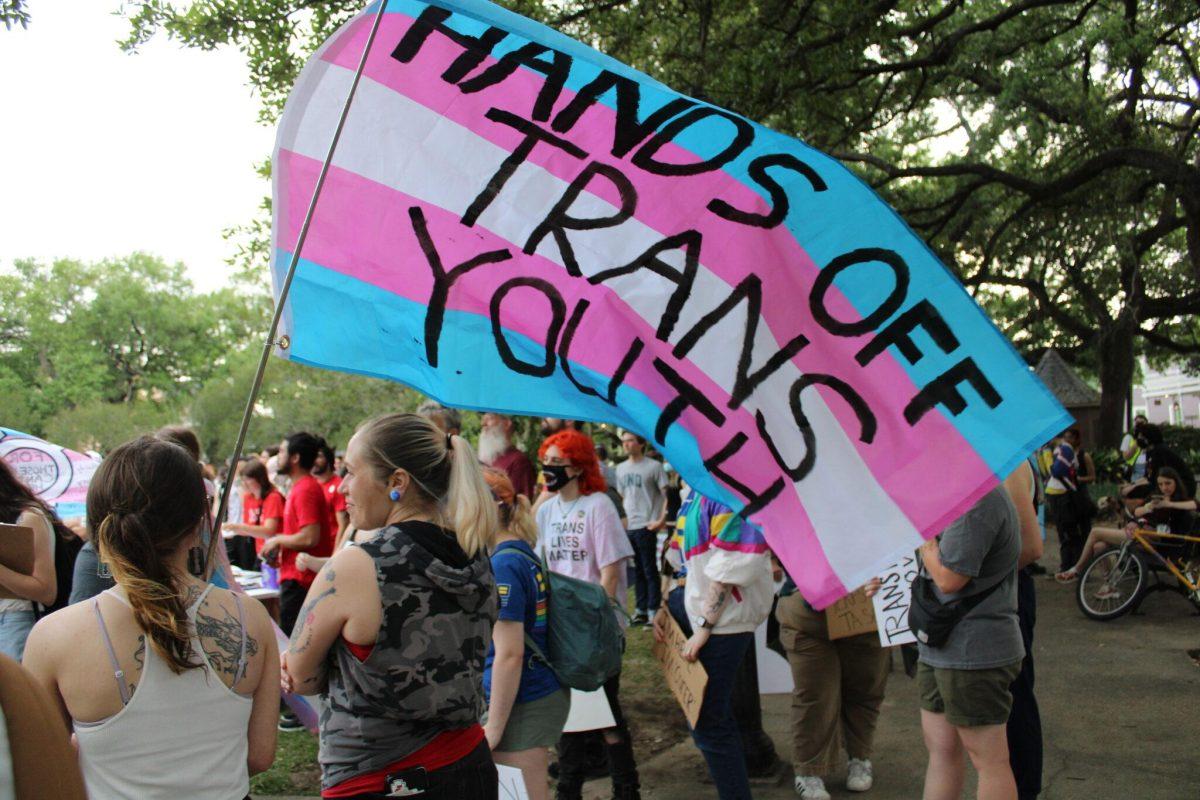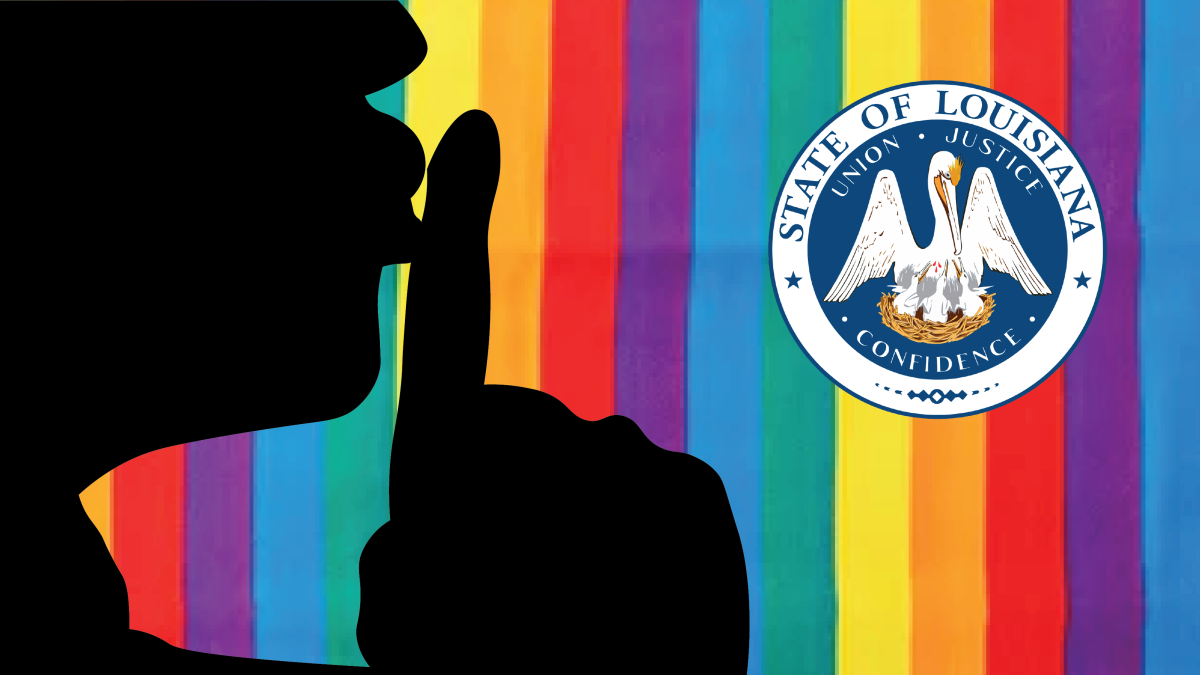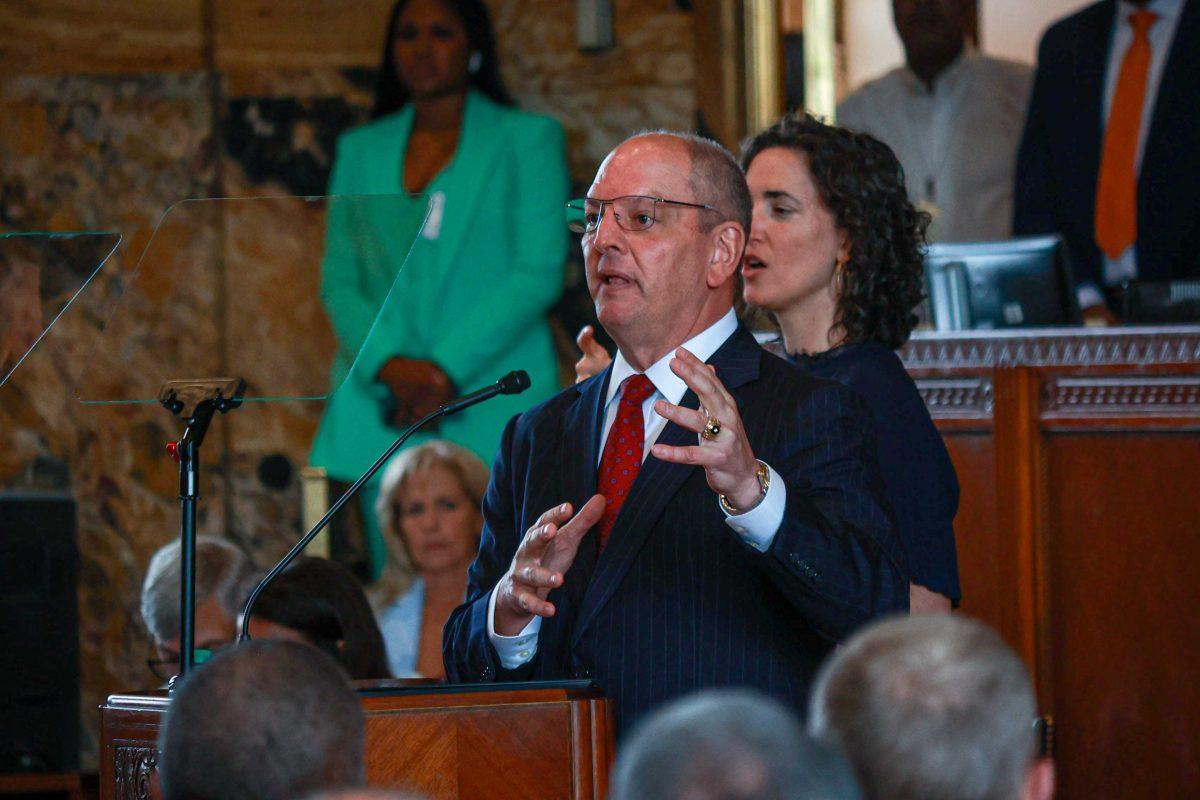A bill that would ban classroom discussion of gender identity and sexual orientation outside of school curriculum passed the House Committee on Education 7-5 on Wednesday.
The proposal, House Bill 466 by Rep. Dodie Horton, R-Haughton, also would require transgender students to get a permission slip from their parents for teachers to use the pronouns matching their gender identity.
And it enshrines in law that school employees do not have to use those pronouns “if doing so is contrary to the employee’s religious or moral convictions.”
A similar proposal authored by Rep. Raymond J. Crews, R-Bossier City, requiring signed permission from parents for trans students to use a different name and pronouns at school also passed 7-5. Both bills will go next to the House floor.
Horton said she authored the bill to protect parental rights, but the proposals sparked outrage and concern among LGBTQ residents and teachers present. Dozens of attendees voiced concerns that the proposals would further harm an already vulnerable group of young people.
Some referenced a 2022 survey by the Trevor Project, an LGBTQ advocacy group, which found 45% of United States LGBTQ youth had seriously considered suicide in the last year. The survey had 34,000 respondents ages 13 to 24.
This bill “will result in the death of queer children,” Mel Manuel, a 15-year public school teacher who is trans, said in a sentiment echoed by many others who opposed the bill.
Manuel runs a Gay-Straight Alliance at their school with over 50 members and said Horton’s bill would effectively eliminate these clubs, since they need a teacher sponsor.
Manuel “Manny” Ocasio, an assistant professor of pediatrics at Tulane University who focuses on the LGBTQ community, said research shows using a trans child’s chosen name can significantly decrease thoughts of suicide.
He talked about three young LGBTQ people he knew. One dropped out of high school. Another was kicked out of their home. And another died at 19.
He said he worries the bills will pressure youth to come out to their parents and face homelessness or abuse in response.
Some felt the bills would make LGBTQ people feel like they have to hide in Louisiana.
Maxwell Cohen, a 27-year-old drag artist from New Orleans, said “this bill would erase someone like me.”
“Being a kid is hard enough,” Cohen said. “Don’t be the bully here.”
Rep. Mandie Landry, D-New Orleans, read a statement on behalf of Public Service Commissioner Davante Lewis, who was attending a meeting in Crowley.
“I remember the dark days, when I would leave this Capitol and think about taking my own life because of the stigma,” Lewis, who is gay, wrote in the statement.
Multiple representatives on the committee said they have received hundreds of emails from both sides about House Bill 466. The committee room was so packed that some attendees had to stand along the walls.
Many of those who testified said the bills would discourage educators from teaching in Louisiana at a time when schools are already struggling to fill positions.
“If laws such as these are passed, I can confidently say I will leave Louisiana and finish my degree elsewhere,” said Josie Beekman, an LSU student studying music education.
One woman who identified herself as a former schoolteacher pointed out that, with the committee starting in the morning, most teachers could not attend and voice their opinions.
Horton and other supporters of the proposal noted similar bills being passed in other states. Florida passed a bill last year banning classroom instruction on sexual orientation or gender identity.
“This is not Kentucky, this is not Missouri, this is Louisiana … Those places are not a reflection of who we are,” said Pearl Ricks, who also testified against the bill.
Horton said her bill is advocating for parental rights around sensitive topics. She said children go to school for an education and “not to be indoctrinated or confused by anyone else’s ideology.”
Chris Alexander, from the Louisiana Citizen Advocacy Group, a conservative advocacy organization, testified that “we have to fight an agenda that is permeating our public schools.”
“What does one say when the enemy is coming after our children?” a woman who identified herself as ex-LGBTQ said.
Meanwhile, LGBTQ residents said the bills degrade their humanity.
“Our lives are really normal. We get married. We brush our teeth…we’re really just like you,” said Tucker Barker, who is gay.
Barker said the first adult he talked to about his sexuality was a teacher. Under this bill, he worries a conversation like that could not happen.
She “made me feel so normal,” he said.
Horton sat among the legislators on the committee for most of the time her bill was being heard. But she rarely looked up at those testifying against it.
“Feel free to look me in the eyes,” Barker said at the beginning of his speech. “I’m here.”
Horton did not meet his eyes.
Two anti-LGBTQ bills advance to Louisiana House floor despite large opposition turnout
April 26, 2023
Rep. Dodie Horton introduced the controversial bill banning discussion of gender identity.
More to Discover


